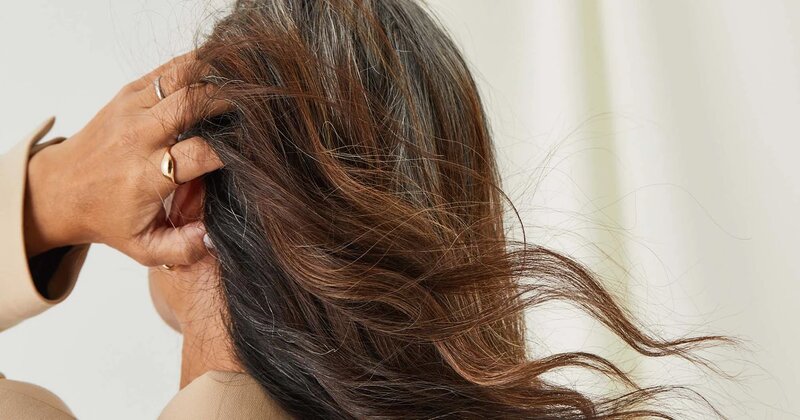
Certainly! Here’s a detailed explanation of how these food items can potentially help slow down the progression of unwanted greys:
1. Antioxidants: Berries, spinach, and kale are rich in antioxidants, which help combat oxidative stress. Oxidative stress can contribute to premature greying by damaging the melanocytes responsible for hair pigmentation.
2. Copper: Nuts, seeds, and seafood contain copper, which is essential for the production of melanin, the pigment responsible for hair color. Adequate copper levels may help maintain natural hair color.
3. Catalase: Foods like potatoes, leafy greens, and garlic contain catalase, an enzyme that helps break down hydrogen peroxide, which can bleach hair and contribute to greying.
4. Vitamins B12 and B9: Eggs, dairy products, and leafy greens are rich in vitamins B12 and B9, which are essential for melanin production. Adequate levels of these vitamins may help maintain hair color.
5. Iron: Red meat, beans, and lentils are high in iron, which is crucial for healthy hair growth and melanin synthesis. Iron deficiency can lead to premature greying.
6. Omega-3 fatty acids: Fatty fish like salmon and mackerel are rich in omega-3 fatty acids, which help maintain scalp health and promote hair growth. Healthy hair follicles are essential for maintaining hair color.
7. Vitamin E: Almonds, sunflower seeds, and spinach are sources of vitamin E, which acts as an antioxidant and may help protect hair follicles from oxidative stress.
8. Selenium: Brazil nuts, fish, and poultry contain selenium, which helps maintain scalp health and may prevent premature greying by supporting healthy hair follicles.
9. Zinc: Oysters, beef, and pumpkin seeds are high in zinc, which plays a role in DNA and RNA production, including the production of melanin. Adequate zinc levels may help maintain hair color.
10. Melanin-rich foods: Black beans, black sesame seeds, and black lentils contain melanin precursors, which may help support natural hair pigmentation.

Post Your Comments